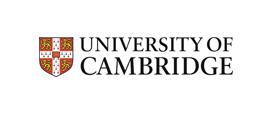- View more resources from this publisher
 University of Cambridge
University of Cambridge
Cambridge Ideas
Cambridge Ideas is an on-going series of short documentaries presenting cutting edge research at Cambridge University together with comment and opinion on matters of global significance. The videos in this collection include:
Darwin's women: explores the emergence of women scientists in the Victorian era, and the help and support that Darwin gave them.
Sticky feet: Chris Clemente explains why insects can walk on the ceiling and the possible applications of his research.
How many lightbulbs?: David Mackay presents a passionate, personal analysis of the energy crisis in the UK, with some surprising conclusions.
Just add water: Dr Alan Tunnecliffe explains how extraordinary animals called rotifers are able to survive under conditions deadly to most life.
Meet the algae: A look at algae as a potential source of renewable energy.
Professor Risk: David Spiegelhalter looks at the subject of risk. He compares comparative risks and shows how statistics are used to face up to life's major risks.
Seahorses and the onion world: Dr Amanda Vincent explains her interest in seahorses and how her research is helping to conserve threatened habitats.
The emotional computer: Professor Peter Robinson explores how emotions can be used to improve interaction between humans and computers.
The future of energy: three academics look at wind power, carbon capture and storage (CCS) and material efficiency as examples of how we can cut our carbon dioxide emissions.
This icy world: Professor Julian Dowdeswell describes how his research reveals the challenges we all face from climate change.
Please note that video comments are moderated by the National STEM Learning Centre and Network and do not represent the views of the University of Cambridge.
Resources
Filter
Darwin's Women
This film, from the University of Cambridge, explores the emergence of women scientists in the Victorian era, and Darwin’s role in helping them to achieve some level of prominence despite the social constraints of the time.
The Darwin Correspondence Project is researching Charles Darwin's letters and has...
Gaia's Mission: Solving the Celestial Puzzle
This film documents the mission to create the largest, most-accurate, map of the Milky Way in three dimensions, which will revolutionise our understanding of the galaxy and the universe beyond. On 19th December 2013, a rocket blasted into the sky from a launch site in French Guiana and travelled 1.5 million km to...
Pages
- « first
- ‹ previous
- 1
- 2
- 3





